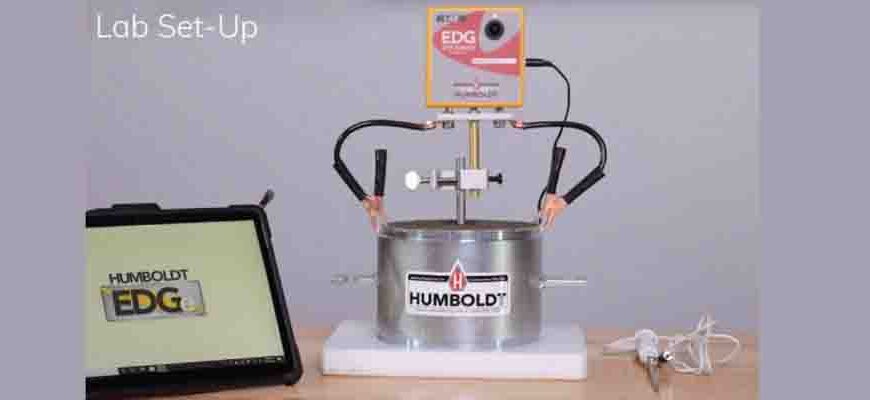The Role of Training and Support from Field Testing Equipment Suppliers
Field testing equipment is integral to achieving accurate, reliable results in various sectors, including construction, geotechnical engineering, and environmental monitoring. Whether working with soil testing equipment in India or specialized tools for concrete or rock analysis, proper training and support from the supplier are essential to ensure the equipment is used effectively and safely. This article delves into the critical role of training and support from field testing equipment suppliers and how it impacts the success of testing projects.
1. Understanding the Importance of Training for Field Testing Equipment
Field testing equipment, whether it’s used for soil mechanics, asphalt testing, or rock analysis, often involves complex instrumentation that requires skilled operation. For instance, equipment like automatic direct shear test machines for soil testing, or rock polyaxial testing systems for rock stability analysis, demand a high level of precision in their setup and use. Without proper training, users may fail to utilize these tools to their full potential, leading to inaccurate results, wasted resources, and potential safety hazards.
Training helps users understand the functionality, limitations, and proper handling of the equipment. It ensures that the devices are calibrated correctly, operated efficiently, and maintained for optimal performance. Whether it’s a non-nuclear density gauge or slope stability analysis software, suppliers that offer comprehensive training programs help users gain the confidence and skills necessary to obtain accurate data from the field.
2. Reducing Operational Errors and Ensuring Accuracy
One of the most significant benefits of supplier-provided training is the reduction of operational errors. Field testing equipment is often complex and requires a precise understanding of how to handle the machines for accurate readings. For example, the Asphalt Non Nuclear Density Gauge must be calibrated and used according to the manufacturer’s specifications. Without proper training, the results could be skewed, which could affect project timelines and budgets.
By offering tailored training for specific pieces of equipment, suppliers can help users avoid common mistakes. Whether it’s learning how to correctly use the Pile Integrity Tester or the rock fracture test system, training ensures that users are equipped with the knowledge to minimize human error and produce reliable, repeatable results.
3. Maximizing Equipment Efficiency and Longevity
Proper training also extends to the maintenance and care of field testing equipment. Knowing how to clean, store, and maintain equipment properly helps to maximize its longevity. Equipment like MIRA Concrete Tomography and vibration monitoring equipment is often a significant investment, and improper handling or neglecting maintenance can lead to expensive repairs or premature failure.
Suppliers that provide thorough training programs often include instructions on maintaining and servicing equipment, preventing downtime, and ensuring that testing instruments remain in top condition. For instance, a rebound hammer used for concrete strength testing requires careful calibration and regular maintenance to function optimally. Supplier-provided training can guide users on how to perform these tasks and detect issues early, thereby prolonging the life of the equipment.
4. Enhancing Safety Protocols
Safety is another critical concern when using field testing equipment. Many of the devices used in geotechnical, environmental, and construction testing involve the manipulation of materials under high pressure, electrical systems, or chemicals. For example, tools like Pressure Aging vessels used in asphalt testing must be handled with extreme care. Training programs often include a safety component, where users are educated about the correct safety protocols to follow during operation.
By emphasizing safe usage, suppliers help prevent accidents and injuries on the job site. Training often includes guidelines on how to recognize and mitigate potential hazards, as well as the proper use of protective equipment. This not only ensures the well-being of those using the equipment but also helps maintain compliance with industry safety standards.
5. Technical Support for Troubleshooting
Even with the best training, issues can arise during testing, whether it’s a malfunction, an error in results, or problems with the equipment setup. Reliable suppliers offer ongoing technical support to address these challenges. For example, if a user experiences difficulties with a field CBR test set or needs assistance with GPR surveys, having access to technical experts who can offer troubleshooting advice is invaluable.
Many suppliers offer customer service hotlines, online resources, and even on-site support for their equipment. This continuous support ensures that any problems that arise during testing can be quickly resolved, minimizing delays and maintaining the flow of the project.
6. Tailored Training for Specific Equipment
Every piece of field testing equipment has its unique features, and the way it’s operated can differ from other tools. For example, a Rock point load test is a specialized device used to assess the strength of rock materials, while a Marshall Stability equipment is specifically designed for asphalt testing. A one-size-fits-all training approach may not be sufficient for users operating such specific devices.
Suppliers who provide tailored training sessions that focus on the specific type of equipment being used can ensure that their customers maximize the potential of each tool. Whether it’s bond pull-off testing for adhesives or residual ring shear testing for soil samples, focused training ensures users get the most out of their equipment.
7. Keeping Up with Industry Innovations
The field testing industry is continuously evolving, with new technologies and equipment being developed to meet the growing demands of the market. As such, it’s important for field testing equipment suppliers to offer training that keeps customers up to date on the latest innovations. For example, advancements in geotechnical modeling software or newer versions of Indirect Tensile Strength of Asphalt require users to stay informed and skilled in utilizing these tools.
Suppliers that offer ongoing training programs or workshops for new product releases can help users stay ahead of the curve, ensuring they are always able to take full advantage of the latest technology available in the field.
Conclusion
Training and support from field testing equipment suppliers are crucial to the success of any project. It ensures that the equipment is used correctly, safely, and efficiently, ultimately leading to accurate results and prolonged equipment lifespan. Whether it’s a specialized rock testing equipment or non-nuclear density gauge, suppliers that invest in providing thorough training and ongoing support empower users to maximize their testing capabilities. In the end, strong supplier partnerships based on trust, knowledge, and expertise help ensure that every field testing project runs smoothly and successfully.











